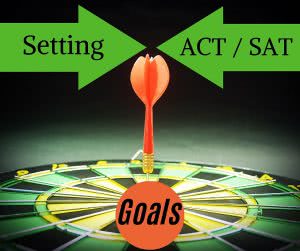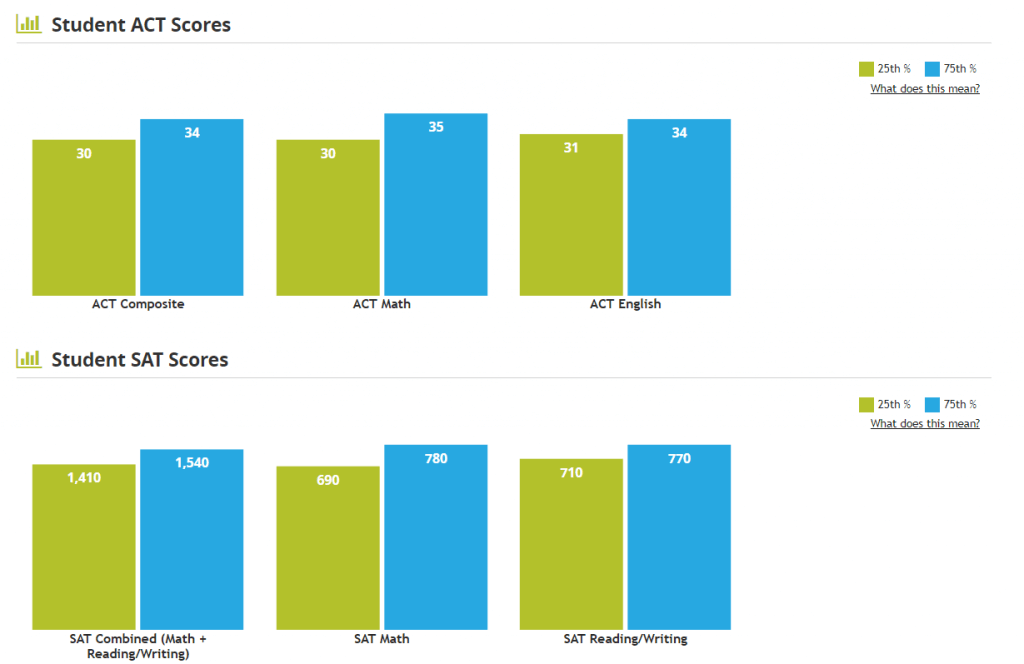 Throughout your high school year your counselors, teachers, and parents would have been emphasizing the importance of getting a good score. If you’re wondering “What is a good SAT score?” or “What is a good ACT score?”, it’s good to do research on the ACT / SAT averages at the colleges on your list. Once you know the averages, it’s time to set realistic goals of your own.
Throughout your high school year your counselors, teachers, and parents would have been emphasizing the importance of getting a good score. If you’re wondering “What is a good SAT score?” or “What is a good ACT score?”, it’s good to do research on the ACT / SAT averages at the colleges on your list. Once you know the averages, it’s time to set realistic goals of your own.
What is a Good SAT Score? Or a Good ACT Score?
What is a “good” score? How can you earn one? Is the ACT/SAT really that important to get into a school? What about your GPA? Doesn’t that count for something, too? What about all the activities you’ve participated in, and all these essays you’ve written? Lots of questions.
The truth is everything counts. GPA, test scores, extracurricular activities, essays, etc. For now though, let’s just focus on the ACT/SAT scores.
The first thing you need to know is that a “good” score is completely subjective. It depends on the context. What do you need a good score for? Is your goal to impress an admissions team and get into a school? Is it to earn scholarships? To become a merit scholar? All of the above? Each scenario might call for a different level of “good.”
Once you know your ultimate goal, you can set an ACT/SAT score goal.
Breaking Down the ACT / SAT Score
The highest score possible on the SAT is 1600. This is a combination of scoring an 800 in math and an 800 in reading. These are the most important portions of the SAT. For most students, any score between 1350 and 1500 would be considered “good.”
For the ACT, a perfect score is a 36. Most students who score a 25 consider that to be a “good” score. Most colleges, however, will accept a bare minimum of anywhere from 15 to 19. But if you’re aiming for an Ivy League, the average score is near perfect.
Don’t panic if you score less than that, however. Most colleges provide a baseline SAT or ACT score to their prospective students. All you need to do is ask, and they can tell you what their absolute minimal score is for acceptance. The College Board has a section on their web site that shows prospective students what the minimal score is on an SAT or ACT to get into the school of their choice. Ask your counselor if you need any help figuring it out.
Setting Your ACT / SAT Score Goals
Start by making a list of the average test scores of all the college on your list. (College Raptor can help you here. Simply type in the name of the school in the search bar and navigate to the Admissions tab. It’ll show you the 25th and 75th percentile averages for both the test and the sub-tests.)

The average SAT and ACT scores for Swarthmore College
Check this against what you scored on your practice test. Are your test scores good enough to get you into the top colleges on your list? If you’re falling short of just a few points, you know you can study and bridge that gap. However, if there is a big difference between your score and the average score of the top colleges on your shortlist, you need to ask yourself if that is realistically possible.
Comparing your scores and the average scores of your shortlisted colleges will help you determine a realistic ACT/SAT score goal for you to aim for.
Tips for Achieving Your ACT / SAT Score Goal
Now that you’ve figured out your goal, it’s time to make a plan to achieve it.
If your scores were less than stellar, it’s time to buckle down and study up. There are plenty of ways to study for a retake. Official study guides, tutors, review sessions, expert test prep programs like Method Test Prep, and more.
Don’t be intimidated by your upcoming ACT / SAT tests. Once you’ve determined what a good SAT score is and set your score goals, you can then set a plan to ace the test and get into the school of your dreams.
Check out how your ACT / SAT scores affect your acceptance odds with College Raptor!


